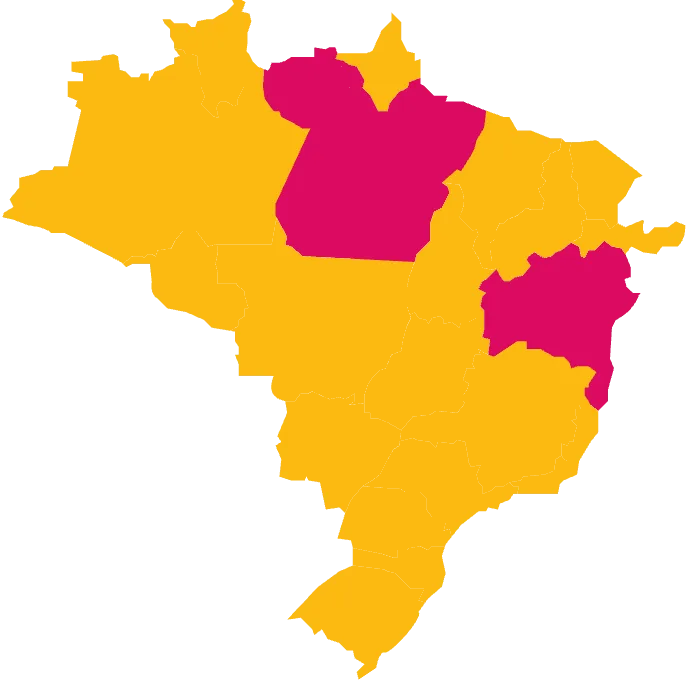
- Reported information for the period from January 1, 2024 to December 31, 2024 covers Brazil. This data is provided by third parties.↩
Cocoa is an important part of the Brazilian agricultural economy. In the early 1980s, Brazil produced approximately 430,000 tons of cocoa beans. However today, the volume has dropped to less than 200,000 tons per year. This dip in production has been ongoing since the late 80s, when declining prices and the spread of a fungal disease called Witches’ Broom led to a crisis in the sector. This has meant that Brazil has gone from the world’s second largest producer in the early 80s to seventh today.
Cocoa Life has been in Brazil since the early days of the program in 2013, focusing mainly on technical assistance and farm rehabilitation research. However, in 2018 Mondelēz partnered with The Nature Conservancy on an initiative to help farmers use agroforestry techniques to grow cocoa on degraded pasture land in the Amazon region. This has provided alternative income streams for cocoa farmers, whilst at the same time helped to restore one of the most critical tropical ecosystems to productivity.
"Despite a number of challenges in its cocoa sector, Brazil is in the unique position of being home to an entire cocoa and chocolate value chain. This generates an annual GDP of around BRL 22 billion. As a country, Brazil has also demonstrated great capacity for modernization, and productivity for different crops has increased considerably over the years. Cocoa forest land can play a crucial role in restoring diverse ecosystems, restoring forests, supporting sustainable agricultural production, diversifying cocoa farmer income, and improving community livelihoods."
Jens Hammer, Cocoa Life’s Country Lead for Brazil
This dashboard demonstrates the scale achieved by the end of 2024 and how Cocoa Life is making progress in its key cocoa-producing countries. Cocoa Life monitors the below indicators under three focus areas, which we put in place with our partners.
"SOLAR DRYERS REPLACE THE NEED TO USE FIREWOOD TO DRY COCOA, THEREBY INCREASING COCOA QUALITY AND PRESERVING FORESTS."
By Ana Paula Souza, Head of the Gandu Cooperative
In the Bahia region of Brazil, Cocoa Life has provided guidance and technology to improve both cocoa yield and quality, as well as environmental impact. Here, Ana Paula Souza, Head of the Gandu Cooperative, describes our efforts:
We worked with the Cocoa Life program in this lush, tropical region to help train farmers in good agricultural practices, such as optimizing shade and soil fertilization. Cocoa Life also provided solar dryers to improve bean quality. The dryers provide a sustainable replacement for the traditional system of using firewood to dry cocoa, preserving the forest and eliminating any smoke flavor in the cocoa beans. This technology has since then been adopted by many farmers in neighbouring communities. And most of all, Cocoa Life united cocoa farmers and workers to motivate, inspire, and support each other.
This page was updated in July 2025.